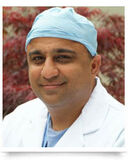Mitral Valve Awareness: The Future of Mitral Valve Therapy
Written By: Adam Pick, Patient Advocate, Author & Website Founder
Medical Expert: Joanna Chikwe, MD, Chief of Cardiac Surgery, Cedars-Sinai Medical Center
Published: April 16, 2023
Medical advances are rapidly transforming mitral valve disease therapy. As a result, both surgical and transcatheter techniques are providing mitral valve patients better outcomes and better therapeutic experiences with less pain and discomfort.
For the last post of Mitral Valve Disease Awareness Week, we interviewed Dr. Joanna Chikwe, the Chair of Cardiac Surgery at Cedars-Sinai Medical Center in Los Angeles, California. Doctor Chikwe is a leading robotic mitral valve surgeon who has successfully treated many patients in our commnunity including Leila Saedi and Lisa Harrington.
Future Insights for Mitral Valve Therapy
Here are Dr. Chikwe’s thoughts about the future of mitral valve therapy:
- To look into the future, Dr. Chikwe believes it is helpful to consider and appreciate the historical advances in mitral valve therapy. “In a relatively short timeframe, we’ve gone to a remarkably safe procedure,” states Dr. Chikwe. “Less than 0.3 of a percent of patients can expect to have a bad outcome with mitral valve surgery today in the United States. That’s a remarkable testament to evolution and technology and clinical experience and just fantastic team and program experience.”
- The experience for mitral valve patients will continue to improve in the future. “In the 20 years that I’ve been in cardiac surgery, I’ve seen this night and day transformation in the patient experience,” states Dr. Chikwe. “From being in the hospital one to two weeks with much larger incisions, needing more pain medication, and recovering more slowly to tiny incisions, much less pain, fewer medications, two or three days in the hospital sometimes and much faster recoveries.”
- The ability to expand treatment to a larger population of mitral valve patients will continue thanks to transcatheter devices. “For sicker, frailer patients that struggle to get through surgery, even when it’s done minimally invasively, transcatheter devices are transformational,” states Dr. Chikwe. “This has really allowed us to help patients that previously didn’t have an option.”
- Developing technology and innovations for the use of mitral valve repair techniques will continue.
- In the future, medical teams will better understand which mitral valve therapy is best suited for each specific patient.
- Clinical trials and registry studies will be instrumental for developing new treatments for mitral valve disease.
Keep Learning About Mitral Valve Surgery
During Mitral Valve Disease Awareness Week, we’re sharing to information to educate you about the management and the treatment of mitral valve disease:
- Transcatheter Mitral Valve Therapy: What Should Patients Know?
- Medical Insights: Advanced Surgical Techniques for Mitral Valve Disease
- See the Mitral Valve Disease Awareness Week Educational Microsite
Keep on tickin!
Adam
P.S. For the deaf and hard of hearing members of our community, I have provided a written transcript of this video with Dr. Chikwe below.
My name is Joanna Chikwe. I’m professor and chairman at Cedars-Sinai in Los Angeles, and my focus is robotic mitral valve repair. When we talk about the future of mitral valve disease, one of the ways we can see what’s coming is to look at what we’ve accomplished, and in a relatively short timeframe, maybe over a decade, we’ve gone from a safe procedure with generally good repair rates to a remarkably safe procedure.
Less than .3 of a percent of patients can expect to have a bad outcome with mitral valve surgery today in the United States, and that’s a remarkable testament to evolution and technology and clinical experience and just fantastic team and program experience.
In the 20 years that I’ve been in cardiac surgery, I’ve seen this night and day transformation in the patient experience. From being in the hospital one to two weeks with much larger incisions, needing more pain medication, and recovering more slowly to tiny incisions, much less pain, fewer medications, two or three days in the hospital sometimes and much faster recoveries, that’s really transformed the patient’s experience.
For sicker, frailer patients that struggle to get through surgery, even when it’s done minimally invasively, transcatheter devices are transformational. This has really allowed us to help patients that previously didn’t have an option, and I think that’s really the future of the transcatheter field.
There are two parts to improving what we do today to take us to where we want to be tomorrow. The first is developing the technology and the innovations that will transform how we repair mitral valves for patients. The second is really understanding which patient is best suited to which approach, and that’s where trials, randomized trials, and registry studies are absolutely essentially because it’s not just about developing new treatments. It’s about really understanding how well do these work and who are these right for?













